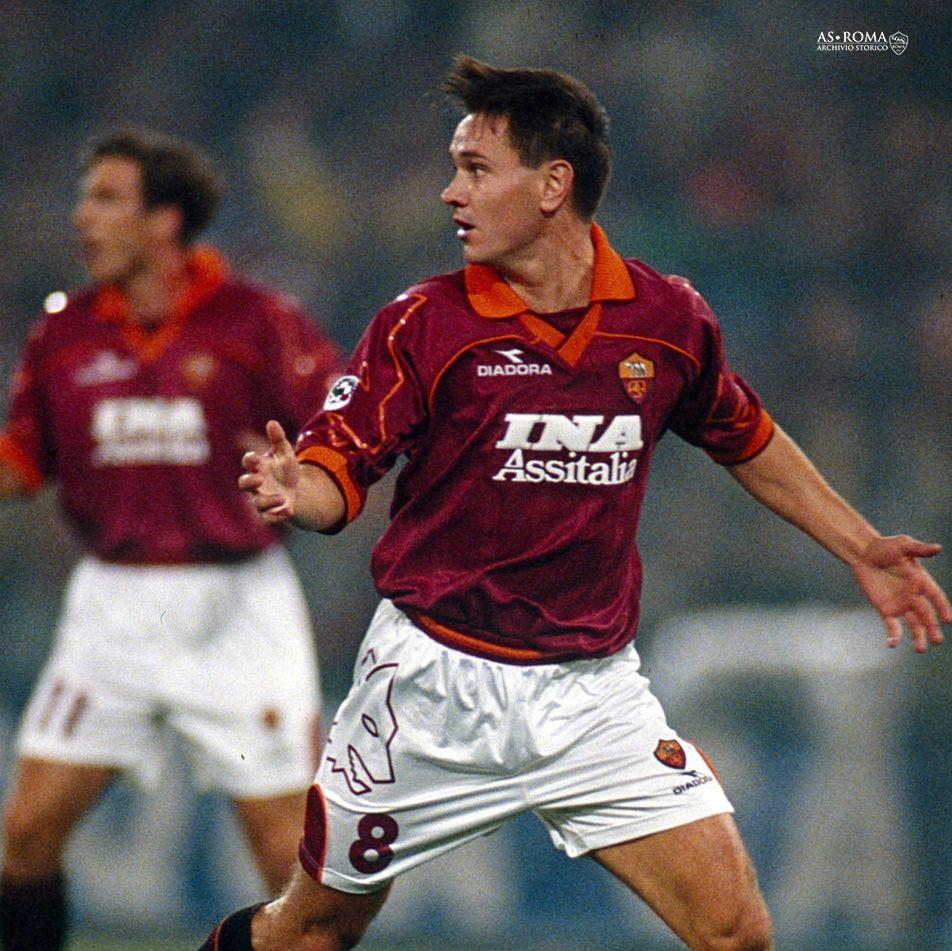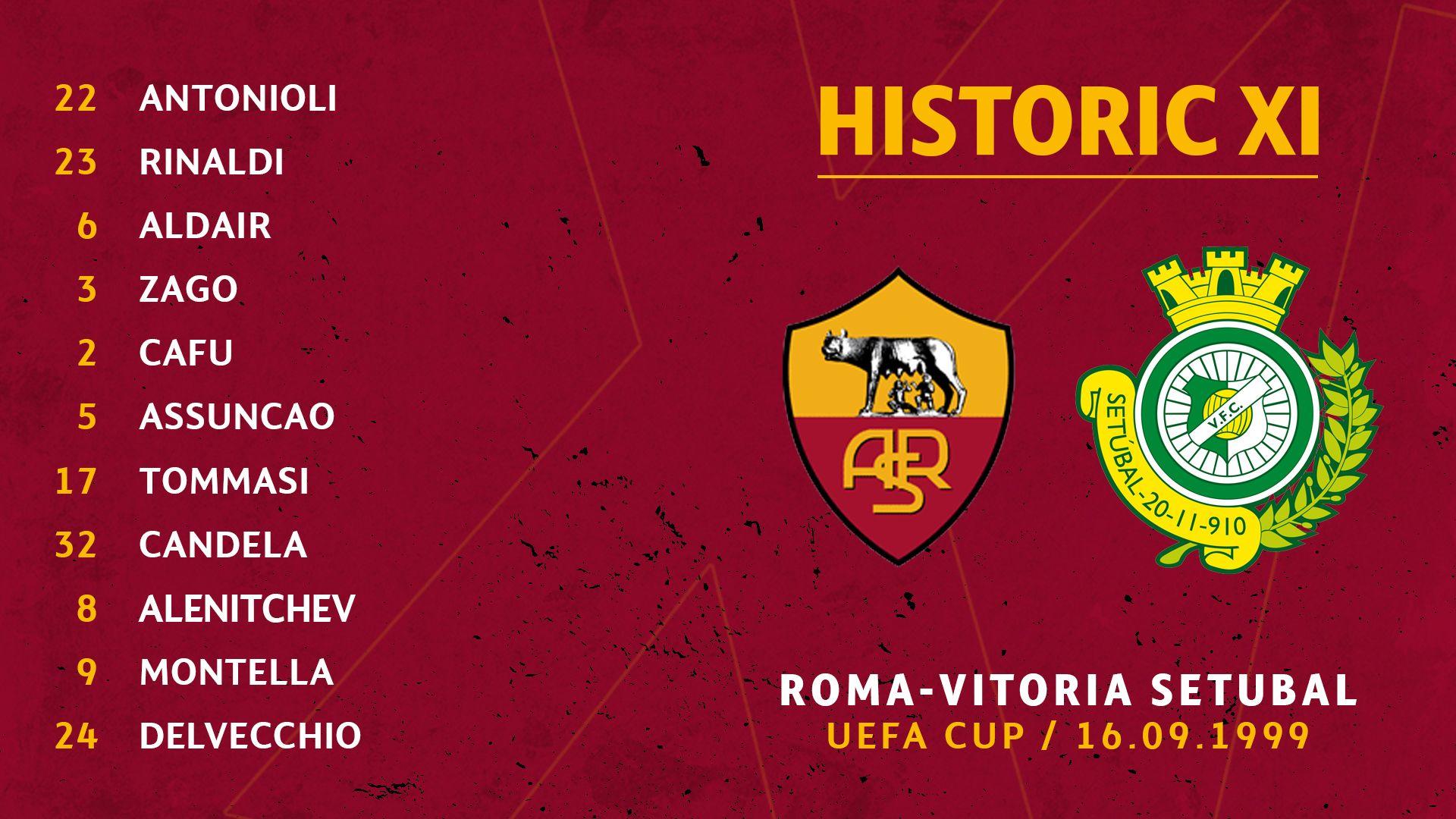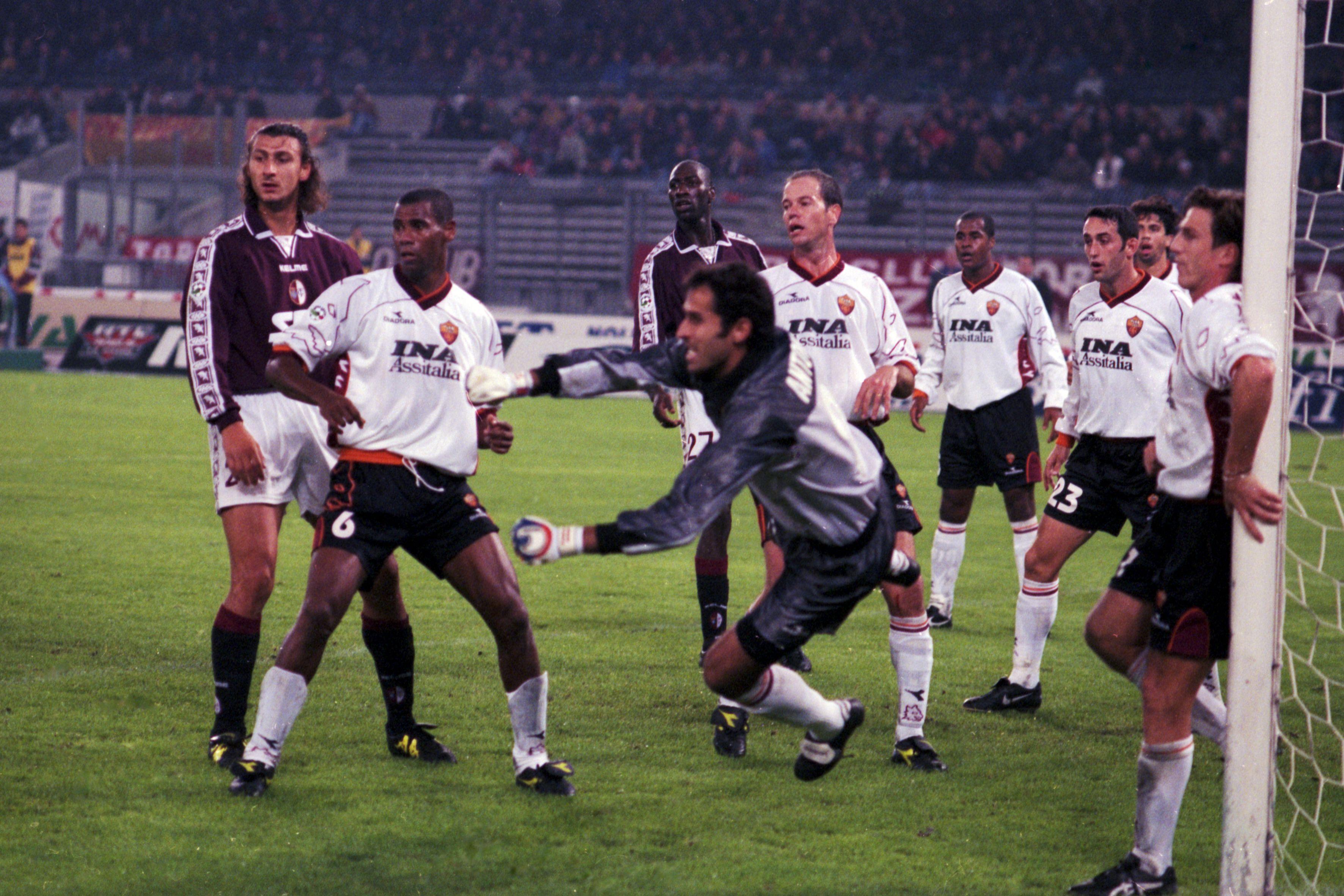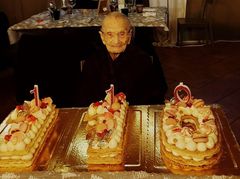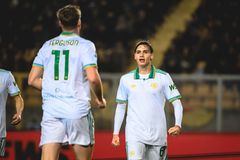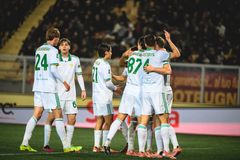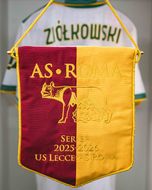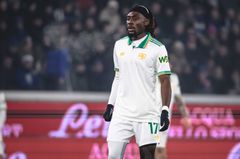
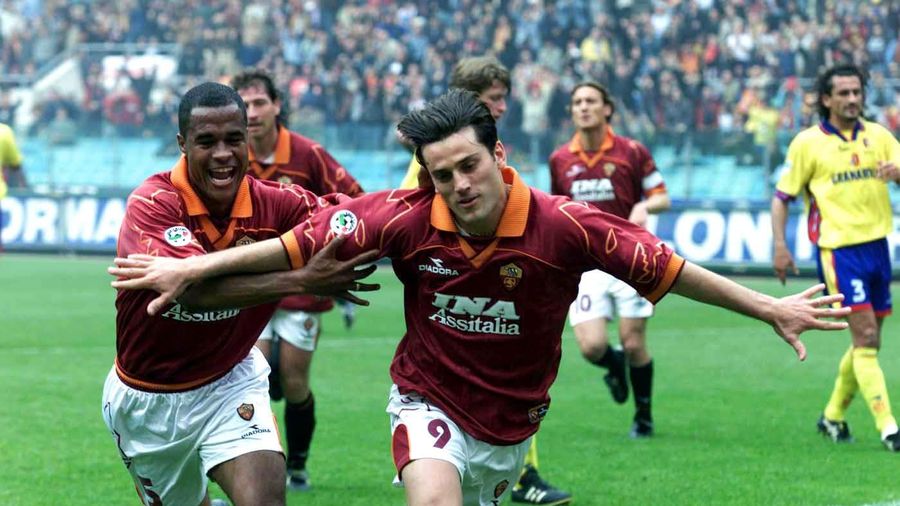
Fabio Capello and Vincenzo Montella are twins. Not by blood, of course, but perhaps in a number of other ways.
For Roma fans, of course, the two will always be linked in some way - their finest moments entwined together in memories that will always live on. They are entwined by fate too: both men born on the same day, June 18, albeit 28 years apart (Montella in 1974, Capello in 1946).
Capello's story with Roma stretches back further, naturally (he was a fine player for the club in his day), but on 16 September 1999 the two men were linked in another manner: as Montella scored his first goal for the club, and Capello grabbed his first win as manager.
In many ways they were the first steps on a formative journey for both men, one that would end with a Scudetto victory - and, for Montella, a place among the club's greatest goalscorers of all time.
The game, however, was not in Serie A. Instead it was the UEFA Cup, the first leg of the first round of the competition, as Portuguese side Vittoria Setubal came to the Olimpico.
It was Roma's third game of the campaign, after two draws in the league (against Piacenza and Inter). With changes in the stands and on the pitch, Capello and his new charges certainly needed a win to start to build some momentum.
Montella, too, needed a goal. Signed in the summer, without a goal in either of the first two games, the pressure was already starting to build on him, as it is prone to do in Rome.
With his first strike he allievated that but Roma did not stop there - scoring seven on the night to romp to an impressive victory. For coach and striker, the seeds of that Scudetto campaign the following year were perhaps sown then.
The star of the night, however, would not be a star of that season. It was the mercurial Russian Dmitri Alenichev who stole the headlines with a hat-trick, while Aldair, Marcos Assuncao and Marco Delvecchio all got their names on the scoresheet too.
For Assuncao - another new Brazilian midfielder wearing No. 5 for the club, lending easy comparisons with Paulo Roberto Falcao - it was also his first goal for the club.
Here's how Fabio Capello laid out his team for that first win with the club...
Francesco Antonioli: A secure, impassive presence in goal. A starter throughout the title-winning season that would follow, even if he was not at his most in-form at times during that campaign. In total he made 145 appearances for the club between 1999 and 2003.
Alessandro Rinaldi: Rome born and raised (he was born in Quadraro), Rinaldi actually began his career far from the capital. The Giallorossi brought him back from Bologna, alongside Antonioli and Mangone, and he too remained a squad player throughout the 2000-01 season. In two seasons he made 44 appearances, scoring once.
Aldair: What more needs to be said about Aldair? A cornerstone, an icon for 13 years - a player whose shirt number (6) was taken out of circulation for a decade out of respect for his achievements. In total he notched 436 appearances for the side, and 30 goals (including one on this day).
Antonio Carlos Zago: Beloved by many for his cultured playing style - the late Ennio Morricone was a huge fan. Good with the ball at his feet, the defender loved a tackle too. A total of 138 appearances and two goals marked his four years at the club, as he also played an unsung role in that run to the Serie A title.
Cafu: The greatest full-back in Roma history, if not that of world football? Quite possibly. In six years at the club he made 218 appearances, cementing his place as a world-class talent.
Damiano Tommasi: 'Gioca bene o gioca male, lo vogliamo in Nazionale' ("Playing well or playing badly, we want him in the national team") was the chant from the stands for Damiano. A cry that started somewhat ironically (his technical quality never matched some of his teammates) it became increasingly earnest over time, as Tommasi cemented his place as a leader and lynchpin of the side. A total of 351 games and 21 goals for the No. 17.
Marcos Assuncao: A central midfielder not blessed with particularly great speed or vision, but deadly from set pieces. Questions would often be asked about what the midfielder actually did for his team each game, yet the results invariably were strong with his presence. Ten goals in 83 games was no mean return.
Vincent Candela: The chosen one to assume the left-back mantle passed down by some greats of the club like Francesco Rocca, Sebino Nela and Aldo Maldera. Candela was a different type of player, though, slower and less rugged, but better when passing the ball and technically almost capable of playing in midfield. 289 games, 16 goals for the Frenchman - and a place in club history.
Dmitri Alenichev: A 1998 signing made to add attacking quality to the midfield in Zdenek Zeman's expansive system, Alenichev never really managed to supplant Tommasi and Eusebio Di Francesco in that role for the mercurial boss. Capello saw him more as a trequartista, a role that seemed to suit him better - although in the end he was used to go the other way in the deal that brought Hidetoshi Nakata from Perugia. It wasn't all bad for him though: in 2004 he lifted the Champions League with Porto, scoring in the final too.
Vincenzo Montella: Roma's No. 9 for so many seasons, even if he absolutely didn't fit the prototype for a side's main goalscoring threat. A dogged, determined forward - so much so that he wouldn't give his number up even when Gabriel Batistuta arrived to so much clamour in 2000. 'A Romario born in Pomigliano D'Arco', some would say. Whatever the case, 102 goals in 258 is a solid return on any investment.
Marco Delvecchio: Milanese by birth, Romanista by choice. Delvecchio had the build and finishing ability of a classic No. 9, yet for the Giallorossi he would fill almost every role across the frontline (most often starting out wide) in order to accommodate so many of his talented teammates. He did the same thing at international level too, and was just minutes away from deciding the Euro 2000 final (before Sylvain Wiltord equalised at the end of normal time). A year later, he had done his part as Roma won the Serie A title. 83 goals in 300 games does not do justice to the extent of his value.

 Tickets
Tickets
 Shop
Shop













